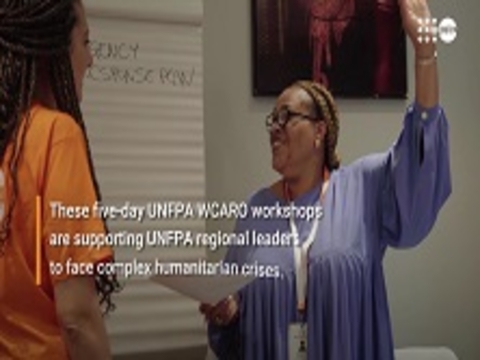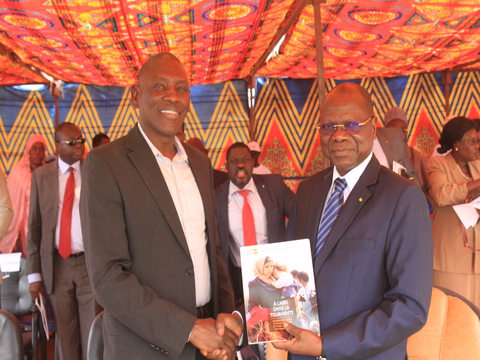Lake Chad, UNFPA relieves plight of suffering inhabitants
In Lake Chad, three islands were completely left behind due to abuses perpetrated by the Boko Haram sect. These are Selia, Ngalamia and Gomirom-Doumou. To remedy this situation, UNFPA Chad deployed a medical infrastructure to help the inhabitants of this area.
With an estimated total population of 9,862 inhabitants, including 2,146 women of childbearing age, these islands are characterized by a complete lack of trained health personnel, combined with dysfunctional health facilities. Access to the nearest health centers is extremely challenging given the lack of adequate means of transport to these islands.
To relieve the suffering of the inhabitants of these islands, UNFPA is in partnership with an NGO, the Humanitarian Initiative for Local Development (IHDL) to enable people to access reproductive health services.
The strategies used are aimed at strengthening the supply of quality sexual and reproductive health services through the installation of three tents of 72 m², the recruitment of six midwives and the supply of reproductive health products. These strategies are also aimed at increasing mobilization and strengthening community involvement through traditional and religious leaders.
Providing sexual and reproductive health services to refugees, displaced people and host populations
Through its field office in Baga Sola, UNFPA provides reproductive health services to refugees in the Dar es Salaam camp, internally displaced persons and host populations. Fifteen midwives were recruited and deployed in addition to equipment and supplies of SR products in health facilities.
Ensuring the protection of vulnerable people
A multifunctional center for the care of survivors of gender-based violence is open in Bol (Regional headquarter). The center provides psychosocial, medical, security, legal aid and legal assistance services to survivors of GBV.
A partnership with the Association of Women Lawyers of Chad (AFJT) for prevention and psychosocial care was established and medical staff recruited and assigned to the center for medical care. The Ministry of Justice has also assigned staff for legal aid and legal assistance for survivors of GBV.
The results obtained: The interventions made it possible to save people's lives
|
8,810 pregnant women benefited from prenatal consultations including 5,857 cases in CPN1
|
2,556 deliveries were attended by qualified personnel
|
1,799 new women of reproductive age have accepted the use of modern contraceptive methods
|
624 reported GBV survivors received assistance, 578 of whom received psychosocial care, 210 received medical assistance and 165 received legal aid. |












